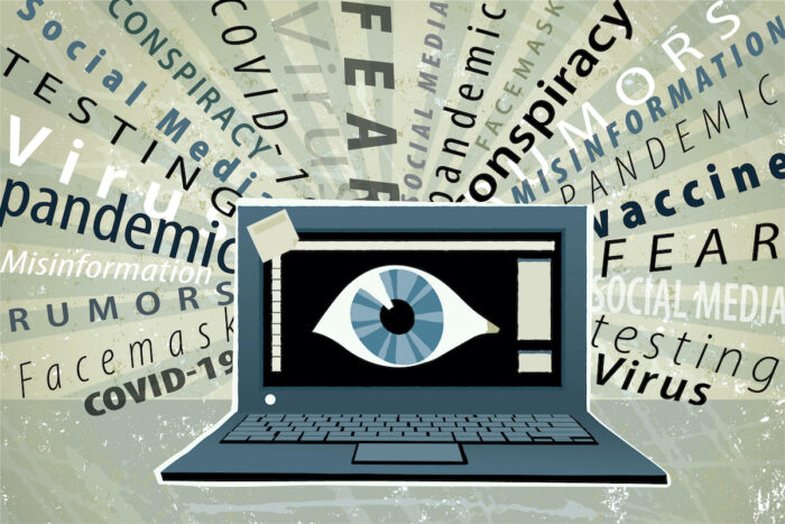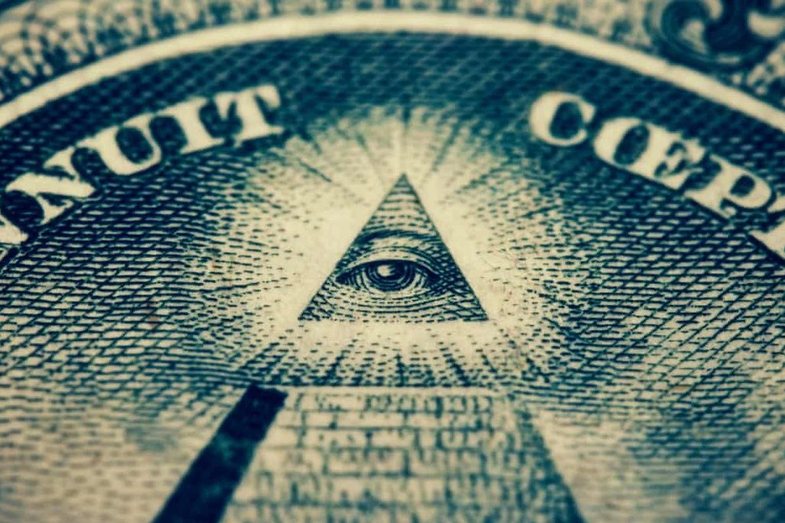
Sociologists have come to a conclusion about what exactly a conspiracy theory is: a theory that refutes the standard explanation for an event and instead mentions a secret group or organization to carry out a secret conspiracy.
Conspiracy theories include the idea of ??powerful groups of people undertaking covert actions that are hidden from the public.
How do conspiracy theories spread?
There is no evidence that there are currently more conspiracy theories compared to other time periods. Any idea, no matter how unfounded, can now spread rapidly thanks to technology. The Internet allows social networks and other news sources to disseminate any opinion. Because social networking platforms, in particular, are designed to increase user engagement, it is easier to spread them.
Studies show that most of the information about the pandemic was accurate, but the fake news seemed to be spreading more and more. For example, many people today believe that the coronavirus is a hoax; or that the vaccine is a means of reducing the world's population.

Who is more likely to believe conspiracy theories? Those who feel isolated or do not have a sense of belonging to a group are more likely to believe in conspiracies. Those who think they belong to a threatened status or have a lower income are also more likely to trust them.
Why are they reliable? Conspiracy theories exploit some of the basic characteristics of being human. The human mind is always trying to find patterns and understand the surrounding environment. Conspiracy theories touch on some human traits and provide explanations that can make us feel more secure.
A conspiracy theory provides an explanation for a phenomenon. Although there is no data or some of their prey is missing, for some people a false explanation is better than no explanation.
Teoritë konspirative ofrojnë një mënyrë që njerëzit të ndihen të sigurt dhe të kenë një lloj autonomie ose kontrolli brenda ngjarjeve të rastësishme. Është një mekanizëm përballues për ata që ndihen në “mëshirën e fatit”.

Pasojat negative të teorive konspirative
Një teori konspirative nuk është thjesht një thashethem i padëmshëm. Për shembull, pretendimet e rrjeteve sociale se maskat shkaktuan pneumoni ose dëmtonin rrjedhën e oksigjenit çuan në polemika dhe konfuzion. Të mos flasim për skepticizmin ndaj vaksinave.
Për shkak se teoricienët e konspiracionit, në mendjen e tyre, i përkasin grupimit më të vogël, më pak të fuqishëm që janë në mëshirën e një grupi më të madh, shpesh ka një ndjenjë të pafuqishme. Kjo shërben vetëm për të rritur më tej ndjenjat e ankthit, izolimit dhe cenueshmërisë ndaj forcave të jashtme.
Journal articles reviewed by experts in a particular field are an excellent source of information, although the information may be a bit technical. Regarding the pandemic, the websites of the Centers for Disease Control and Prevention (CDC) and the WHO are among the most prestigious for the data, they are constantly updated and their content is based on scientific research.
Sources: Very Well Mind, Psychology Today







